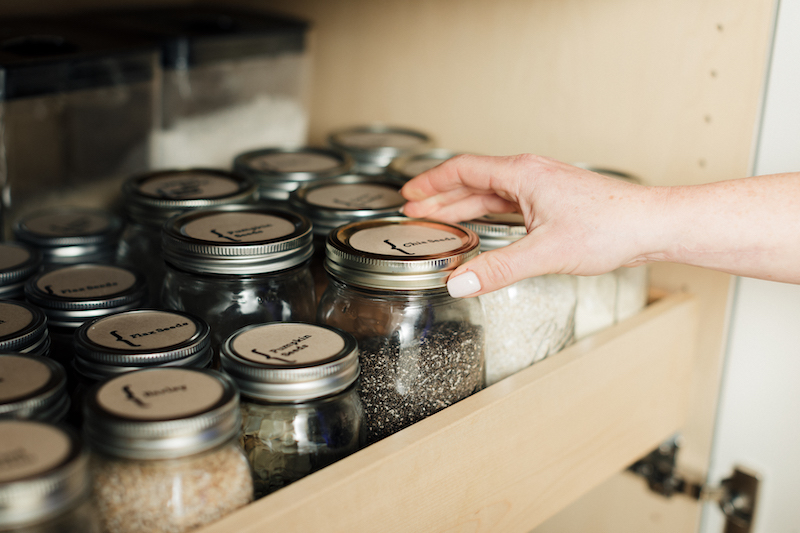What’s in Your Pantry?

What’s in your Pantry?
We believe healthy eating begins in the home. One of the most important keys to achieving a healthy lifestyle is establishing simple, sustainable habits and having a well-stocked pantry can be the first step in that direction. Surprisingly, WHAT you have on hand can matter as much as WHERE things are stored. Read on for our list of pantry essentials and find out more about our in-home pantry help sessions below:
Whole Grains
Whole grains include the bran, the germ, and the endosperm of the plant, which maintains the grain’s protein along with other key nutrients like fiber. Because consuming whole grains can reduce the risk of heart disease, stroke, cancer, and diabetes, we suggest looking for products that say “100% whole _____” on the package, list a “whole” grain first in their ingredient list, or have the Whole Grain Stamp. These are a few of the whole grains we routinely recommend:
- Old-fashioned oats
- Whole wheat pasta and couscous
- Brown rice
- Quinoa
- Barley
- Popcorn
Recipes using whole grains can be found HERE!!
Nuts and Seeds
Nuts and seeds are great nutritional boosts to add to your favorite recipes or enjoy on their own. Seeds like chia and flax have become popular in recent years for their fiber and Omega-3 fatty acid content, and hemp seeds are loaded with plant-based protein. When it comes to nuts and nut butter, we think the simpler the better. Avoid salt, sugar and oils when possible:
- Chia seeds
- Flax seeds
- Hemp seeds
- Pumpkin seeds
- Raw almonds, cashews, and walnuts
- Nut butter
Canned Goods
Despite what many people think, canned goods aren’t necessarily inferior to their fresh counterparts. Water-soluble vitamins including vitamin C and the B vitamins show the greatest losses in processing; however, in general, there are nutritional benefits to consuming canned versions of the foods below versus not at all. Before you buy, check for the addition of salt and/or sugar, which are used as preservatives, and choose one without, if available:
- Beans (black, garbanzo, cannellini, kidney, etc)
- Tomatoes
- Pumpkin
- Coconut milk
- Tuna
- Artichoke hearts
Curious about other types of processing? Check out our blog on freeze-dried, frozen and canned produce!
Cooking Supplies
Sometimes you just need a little something to bring a meal together. Here are a few FEED faves for easily adding flavor and texture to meals:
- Broth or cooking stock
- Maple syrup
- Whole wheat bread crumbs
- Cornmeal
- Dried fruit